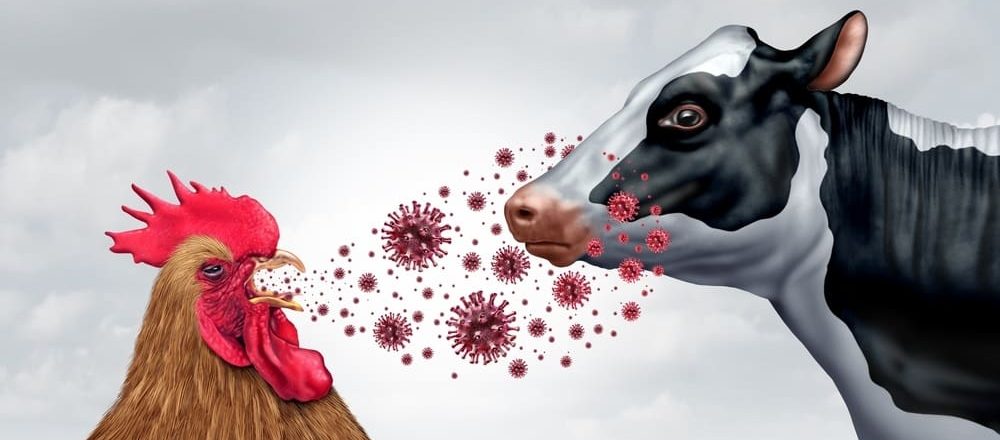
UK livestock producers have been urged to be vigilant after bird flu was confirmed in a ewe.
AVIAN influenza has been confirmed in sheep for the first time, in a ewe on a United Kingdom farm following repeat milk testing.
UK Chief Veterinary Officer Christine Middlemiss confirmed a case of influenza of avian origin (H5N1) in a single sheep on a Yorkshire farm.
The Department for Environment, Food & Rural Affairs said while this is the first time the virus has been reported in a sheep, it is not the first time influenza of avian origin has been detected in livestock in other countries.
The disease has been known to occur in mammals, including humans, cows, cats, foxes, seals, dolphins, raccoons and skunks.
There is no evidence to suggest an increased risk to the UK’s livestock population, DEFRA said.
However, Dr Middlemiss urged all livestock keepers to remain vigilant to the clinical signs of avian influenza following recent outbreaks.
“All keepers must maintain good biosecurity which is essential to protect the health and welfare of their animals and critical to preventing the further spread of disease in the event of an outbreak,” she said.
“Strict biosecurity measures have been implemented to prevent the further spread of disease.
“While the risk to livestock remains low, I urge all animal owners to ensure scrupulous cleanliness is in place and to report any signs of infection to the Animal Plant Health Agency immediately,” she said.
DEFRA said the sheep case was identified following routine surveillance of co-located livestock on a premises where avian influenza had been confirmed in captive birds. Defra has introduced livestock surveillance on infected premises following the outbreak of avian influenza in dairy cows in the US.
The infected sheep has been humanely culled to enable extensive testing, DEFRA said. Further testing in the remaining flock of sheep at the premises was undertaken by the avian influenza national reference laboratory at the Animal and Plant Health Agency Weybridge laboratory. No further infection with avian influenza virus was detected in the remaining flock and this remains a single case in a mammal detected on the premises, DEFRA said.
In line with the UK’s international reporting requirements, this case will now be reported to both the World Organisation for Animal Health (WOAH) and the World Health Organisation.
The UK Health Security Agency has said that avian influenza is primarily a disease of birds and the risk to the general public’s health is very low, but people should not touch any dead or sick wild birds they find.
The Food Standards Agency advised that properly cooked poultry and poultry products, including eggs, remain safe to eat and avian influenza poses a very low food safety risk to UK consumers since the H5N1 virus is not normally transmitted through food.
Dr Meera Chand, Emerging Infection Lead at the UK Health Security Agency, said globally, we continue to see that mammals can be infected with avian influenza A(H5N1).
“However, current evidence suggests that the avian influenza viruses we’re seeing circulating around the world do not spread easily to people – and the risk of avian flu to the general public remains very low.
“UKHSA will continue to monitor the situation closely alongside Defra, DHSC, Animal and Plant Health Agency and Food Standards Agency,” she said.
“UKHSA has established preparations in place for detections of human cases of avian flu and will respond rapidly with NHS and other partners if needed.”
Robin May, Chief Scientific Adviser at the FSA said the agency is working very closely with Defra, UKHSA and Food Standards Scotland.
“Our advice remains that bird flu poses a very low food safety risk to UK consumers since the H5N1 virus is not normally transmitted through food.
“We continue to monitor the situation closely and will assess any emerging information to continue to ensure UK food is safe.”

Would an extended duck season with no bag limit help at all?